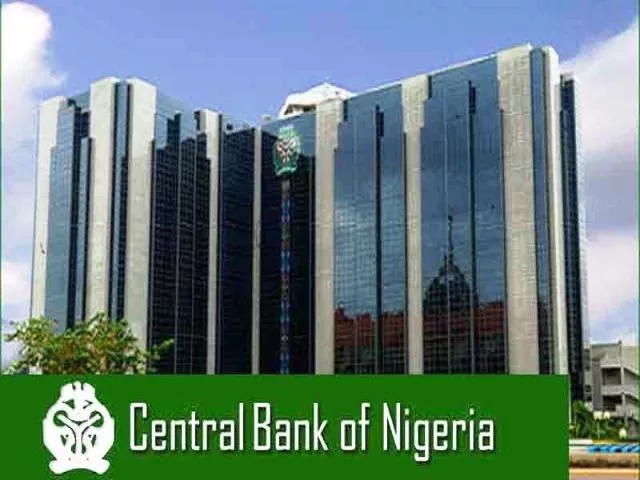Headquarters of Central Bank of Nigeria (Abuja Office)
Last updated on August 19th, 2023 at 05:31 pm
The Central Bank of Nigeria (CBN) was established from the 1958 Act of Parliament which was further amended in 1991, 1993,1997,1998, 1999 and 2007 respectively. It commenced work officially in 1959. The Central Bank of Nigeria is the apex bank in Nigeria charged with the overall control and administration of the monetary and financial policies of the Federal Government in Nigeria.
Objectives of the Central Bank Of Nigeria
It is the CBN objective to:
- Ensure that Nigeria’s currency and prices are stable both locally and inter
- To issue the legal tender currency in Nigeria
- To maintain Nigeria’s external reserves in a bid to safeguard the international value of the Naira
- Establish a solid financial system in Nigeria and
- Provide economic and financial advice to the Federal Government.
Also, it is the duty of the Central Bank to regulate the activities of other Banks in Nigeria and other Financial Institutions in Nigeria with the aim of ensuring that high standards of banking practice are met by these banks operating in Nigeria.
Over the years, the CBN has also helped in stabilizing the key sectors of the Nigerian economy (financial, industrial and agricultural sectors) through its various departments.
The official website of the Central Bank of Nigeria is https://www.cbn.gov.ng/
Address of the Central Bank of Nigeria, Abuja
Intelligent Building,
P.M.B, 187 Abuja Tafawa Balewa Way,
Central Business District, Abuja.
Working Hours: 8a.m to 4p.m (Mondays to Fridays), Visiting days (Tuesday & Thursday) Strictly by appointment.
Phone: 0700 225 5226
Email: info@cbn.gov.ng
Post Office Box
P.M.B. 0187,
Garki Abuja.
Nigeria.
How to Write an Effective Complaint Letter to the Central Bank of Nigeria (CBN)
Writing a complaint letter to a financial institution like the Central Bank of Nigeria (CBN) can be a daunting task, but it’s an essential step when you’re facing issues that require their attention. A well-structured complaint letter can help you voice your concerns, seek resolution, and ensure that your grievances are heard.
Here’s a step-by-step guide on how to craft an effective complaint letter to the CBN:
Step 1: Gather Information and Documentation
Before you start writing, ensure you have all the necessary information. Collect relevant documents, such as account statements, transaction records, and any correspondence related to the issue. Having these details on hand will make your complaint letter more credible and informative.
Step 2: Choose the Right Format
Use a formal business letter format. Include your contact information, the date, and the recipient’s details. Address the letter to the appropriate department or official at the CBN.
Step 3: Write a Clear and Concise Subject Line
Your subject line should convey the purpose of your letter in a few words. It could be something like “Formal Complaint Regarding Fraud Against Bank.”
Step 4: Begin with a Formal Salutation
Start your letter with a polite and respectful salutation, such as “Dear Sir/Madam” or “To Whom It May Concern.”
Step 5: Introduction
In the opening paragraph, introduce yourself and provide a brief context for your letter. State that you are writing to lodge a formal complaint and briefly mention the issue you’re facing.
Step 6: Present the Details
In the subsequent paragraphs, provide a clear and objective account of the issue. Include dates, account numbers, transaction details, and any other relevant specifics. Stick to the facts and avoid emotional language.
Step 7: Explain the Impact
Describe how the issue has impacted you. Whether it’s financial losses, inconvenience, or emotional stress, clearly articulate the consequences of the problem.
Step 8: State Your Desired Resolution
Explain what you expect from the CBN in terms of resolution. Be specific but reasonable in your requests. Whether you’re seeking a refund, a correction of errors, or an investigation, make it clear.
Step 9: Offer Supporting Documentation
Mention that you have enclosed copies of any relevant documents that support your complaint. If you haven’t enclosed them with the letter, express your willingness to provide them upon request.
Step 10: Express Confidence in Resolution
Express your confidence in the CBN’s ability to address the matter and resolve the issue satisfactorily.
Step 11: Close the Letter
End the letter with a polite closing, such as “Sincerely” or “Yours faithfully,” followed by your signature and printed name.
Step 12: Enclosures and Contact Information
If you’re sending any supporting documents, list them under an “Enclosures” section. Reiterate your contact information (phone number, email address) in case they need to reach you.
Step 13: Proofread and Revise
Before sending, thoroughly proofread the letter for grammar, spelling, and clarity. A well-written letter shows professionalism and seriousness.
Step 14: Send the Letter
Send the complaint letter via registered mail or certified mail to ensure proper delivery and tracking. This way, you have proof that the CBN received your complaint.
Sample of Complaint Letter To The CBN
Here’s a sample complaint letter addressed to the Central Bank of Nigeria (CBN). You can use this as a template and customize it with your specific details:
[Your Name]
[Your Address]
[City, State, ZIP Code]
[Your Phone Number]
[Your Email Address]
[Date]
[Recipient’s Name]
[Recipient’s Title]
[Central Bank of Nigeria]
[Address]
[City, State, ZIP Code]
Subject: Formal Complaint Regarding [Issue]
Dear [Recipient’s Name],
I hope this letter finds you well. I am writing to lodge a formal complaint concerning an issue I have encountered with [describe the issue, e.g., unauthorized withdrawal from my savings account] at [Bank Name], a financial institution under the jurisdiction of the Central Bank of Nigeria.
Details of the incident are as follows:
– Account Holder’s Name: [Your Name]
– Account Number: [Your Account Number]
– Date of Incident: [Date of Incident]
– Transaction ID (if applicable): [Transaction ID]
– Amount Involved: [Amount]
I have attached copies of relevant documents, including account statements and transaction records, that provide evidence of the issue. [If documents are not attached, you can state that you are willing to provide them upon request.]
This incident has caused significant financial stress and inconvenience for me. [Explain how the issue has impacted you, e.g., resulted in overdraft fees, delayed bill payments, etc.]
I kindly request that the Central Bank of Nigeria investigate this matter thoroughly and take appropriate action to rectify the situation. Specifically, I am seeking [describe your desired resolution, e.g., a full refund of the unauthorized withdrawal, clarification of the transaction, etc.].
I am confident that the Central Bank’s commitment to ensuring fair and transparent financial transactions will lead to a prompt resolution of this matter. I appreciate your attention to this complaint and your dedication to maintaining the integrity of the Nigerian banking system.
Please feel free to contact me at [Your Phone Number] or [Your Email Address] if you require any further information. I look forward to a swift and satisfactory resolution.
Thank you for your time and consideration.
Sincerely,
[Your Signature]
[Your Printed Name]
Enclosures:
– Copy of Account Statement (Date Range: [Date Range])
– Copy of Transaction Record (Transaction ID: [Transaction ID])
Conclusion
Remember, a well-structured complaint letter communicates your concerns effectively and increases the likelihood of a timely and satisfactory resolution. Be patient, as it might take some time for the CBN headquarters to investigate and respond. If you don’t receive a response within a reasonable period, consider following up with a polite inquiry.



